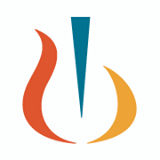Novartis AG

- Country
- 🇨🇭Switzerland
- Ownership
- Public, Private
- Established
- 1996-01-01
- Employees
- 76K
- Market Cap
- $242.6B
- Introduction
Novartis develops and manufactures innovative drugs. The firm's key areas of drug development include oncology, rare diseases, neuroscience, immunology, respiratory, cardio-metabolic, and established medicines. The company sells its products globally, with the United States comprising close to one third of total revenue.
Clinical Trials
1.1k
Trial Phases
5 Phases
Drug Approvals
55
Drug Approvals
EXELON 9.5MG-24H TRANSDERMAL PATCHES
- Approval Date
- Jul 18, 2025
- Company
- lts lohmann therapie-systeme
- Prev
- 1
- 2
- 3
- 4
- 5
- 6
- Next
Clinical Trials
Distribution across different clinical trial phases (1017 trials with phase data)• Click on a phase to view related trials
A Real-world Study of Effectiveness and Safety in HR+/HER2- Breast Cancer Patients Treated With Ribociclib or Alpelisib
- Conditions
- Hormone Receptor Positive HER-2 Negative Breast Cancer
- First Posted Date
- 2024-11-26
- Last Posted Date
- 2024-11-26
- Lead Sponsor
- Novartis
- Target Recruit Count
- 435
- Registration Number
- NCT06705504
- Locations
- 🇺🇸
Novartis, East Hanover, New Jersey, United States
Heart Failure Therapy and Outcomes in Patients With Heart Failure With Mildly Reduced or Preserved Ejection Fraction
- Conditions
- Heart Failure With Reduced Ejection FractionHeart Failure With Preserved Ejection Fraction
- First Posted Date
- 2024-11-04
- Last Posted Date
- 2024-11-04
- Lead Sponsor
- Novartis
- Target Recruit Count
- 42494
- Registration Number
- NCT06671314
- Locations
- 🇺🇸
Novartis Pharmaceuticals, East Hanover, New Jersey, United States
Real World Patient Characteristics and Treatment Patterns From Crizanlizumab Use: Preliminary Analysis From Select Sickle Cell Centers
- Conditions
- Sickle Cell Disease
- First Posted Date
- 2024-10-29
- Last Posted Date
- 2024-10-29
- Lead Sponsor
- Novartis
- Target Recruit Count
- 376
- Registration Number
- NCT06662825
- Locations
- 🇺🇸
Novartis Pharmaceuticals, East Hanover, New Jersey, United States
Characteristics and Treatment Patterns of Patients With Sickle Cell Disease in Globin Research Network for Data and Discovery Registry
- Conditions
- Sickle Cell Disease
- First Posted Date
- 2024-10-29
- Last Posted Date
- 2024-10-29
- Lead Sponsor
- Novartis
- Target Recruit Count
- 1665
- Registration Number
- NCT06662812
- Locations
- 🇺🇸
Novartis Pharmaceuticals, East Hanover, New Jersey, United States
Real-World Persistence and Adherence of Ofatumumab Compared to Self-Injectable and Oral DMTs in Patients With Multiple Sclerosis
- Conditions
- Multiple Sclerosis
- First Posted Date
- 2024-10-16
- Last Posted Date
- 2024-10-16
- Lead Sponsor
- Novartis
- Target Recruit Count
- 3632
- Registration Number
- NCT06644638
- Locations
- 🇺🇸
Novartis, East Hanover, New Jersey, United States
- Prev
- 1
- 2
- 3
- 4
- 5
- 143
- Next
News
Galapagos Appoints New Board Directors to Accelerate Business Development Strategy
Galapagos has appointed Dr. Neil Johnston and Devang Bhuva to its Board of Directors effective November 1, 2025, bringing extensive business development and financial leadership expertise.
Breckenridge Launches Generic Everolimus 1mg Tablets, Completing Full Strength Portfolio for Transplant Patients
Breckenridge Pharmaceutical launched Everolimus Tablets 1mg, a generic version of Novartis' Zortress, completing their full strength portfolio of this immunosuppressant medication.
Novartis Reports 6% Operating Income Growth Driven by New Drug Portfolio Performance
Novartis reported third-quarter operating income of $5.46 billion, representing a 6% increase driven by growth in new drug sales that offset stagnant revenue from established treatments.
Novartis' Cosentyx Achieves Primary and Secondary Endpoints in Phase III Polymyalgia Rheumatica Trial
Novartis announced that Cosentyx (secukinumab) successfully met the primary endpoint and all secondary endpoints in the Phase III REPLENISH trial for polymyalgia rheumatica treatment.
Abeona Therapeutics Appoints Gene Therapy Expert James Gow as Senior VP of Clinical Development
Abeona Therapeutics has appointed James A. Gow, MD, MBA, MS, MHCM, as Senior Vice President, Head of Clinical Development & Medical Affairs, effective immediately.
Excellergy Raises $70M Series A to Advance Novel Trifunctional Allergy Treatment Platform
Excellergy secured $70 million in Series A funding to develop first-in-class trifunctional Effector Cell Response Inhibitors (ECRIs) for allergic conditions.
Eli Lilly and AstraZeneca Emerge as Leading Candidates for Next Trump Administration Drug Pricing Deal
Wall Street analysts predict Eli Lilly and AstraZeneca are the most likely pharmaceutical companies to strike the next drug pricing deal with the Trump administration following Pfizer's September 29 agreement.
Sanofi's AlphaMedix Radioligand Therapy Meets All Primary Endpoints in Phase 2 GEP-NET Trial
Sanofi and Orano Med's AlphaMedix (212Pb-dotamtate) achieved all primary efficacy endpoints in a Phase 2 study for gastroenteropancreatic neuroendocrine tumors, showing clinically meaningful overall response rates.
Amgen's Repatha Demonstrates Long-Term Cardiovascular Benefits in Phase III VESALIUS-CV Trial
Amgen's Phase III VESALIUS-CV trial met both primary endpoints, demonstrating that Repatha significantly reduces major adverse cardiovascular events in high-risk patients without prior heart attack or stroke.
FDA Approves Remibrutinib as First Oral BTK Inhibitor for Chronic Spontaneous Urticaria
The FDA has approved remibrutinib (Rhapsido) as the first oral Bruton's tyrosine kinase inhibitor for treating chronic spontaneous urticaria in adults who remain symptomatic despite antihistamine therapy.
